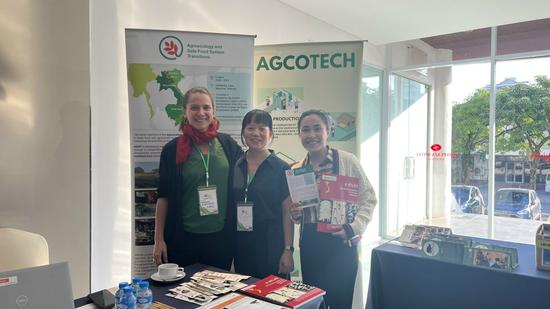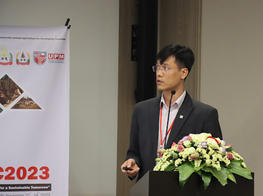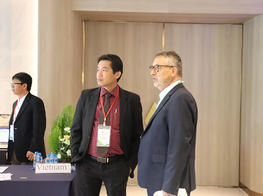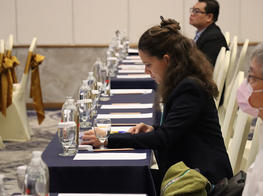Exploring Sustainability in Livestock Agriculture: ASSET Highlights from SAADC 2023 Conference
Vientiane, Lao PDR - The Agroecology and Safe Food System Transitions (ASSET) Project team took part in Sustainable Animal Agriculture for Developing Countries (SAADC2023) International Conference, centered around the theme "Sustainable Animal Agriculture for a Sustainable Tomorrow" from 21-24 November 2023. Hosted by Faculty of Agriculture, National University of Laos, this significant event brought together experts and researchers, showcasing over 190 presentations. These presentations offered comprehensive insights into ongoing research in various domains of livestock systems, including nutrition, genetics, animal health, farm management, and the interplay between livestock and the environment.
A highlight of the conference was the introductory session, which focused on the current state and future challenges of livestock production in Lao PDR and broader Asia. Notably, a dedicated session addressed the improvement of livestock greenhouse gas (GHG) inventory in Southeast Asia, featuring collaborative research efforts from NZAGRC, JIRCAS, UPM, and encompassing studies from Cambodia, Indonesia, Lao PDR, Malaysia, the Philippines, Thailand, and Vietnam.
ASSET Project team contributed meaningfully to the conference. Among their multiple presentations, one was particularly notable, based on results from the ASSET project itself: "Contribution of Crop-Livestock Integration Practices to Farm and Territorial Performances: An Example from North-West Vietnam," co-authored by Blanchard M, Le Trouher A, Tos P, Moulin C-H, Le Thi Thanh Huyen.
Another study was presented by Dr. Mélanie Blanchard, highlighting the work conducted by Pavel Tos, a French master student, during his time in Vietnam from April to July.
Pavel Tos's research focused on the role of crop-livestock integration in enhancing farm and territorial performances, with a case study centered in the Dien Bien district. His study delved into how farmers employ agricultural products and by-products, such as rice straw, fodder, and rice bran, for animal feed, and utilize animal dung as fertilizer for crops. These practices are pivotal in agroecological strategies, embodying principles of synergy, recycling, and efficiency.
In Dien Bien, the research examined various farms, assessing the recycled biomass flows within and between farms, particularly in the context of cropping and livestock systems. Key findings included:
- Widespread reliance on fertilizers for soil fertility management in most farms.
- Utilization of crop residues and agricultural by-products, both from the farm and others, as animal feed, reducing dependence on industrial feeds.
- Active involvement of specialized farms in biomass recycling at a territorial level, primarily dependent on biomass from non-specialized mixed farms.
- Limited development of inter-farm crop-livestock integration, predominantly involving exchanges of rice by-products for livestock feeding and compost for fruit and vegetable production.
- The role of crop-livestock integration in fostering a circular economy at the territorial level, although primarily focused at the farm level.
Published: 01/12/2023





